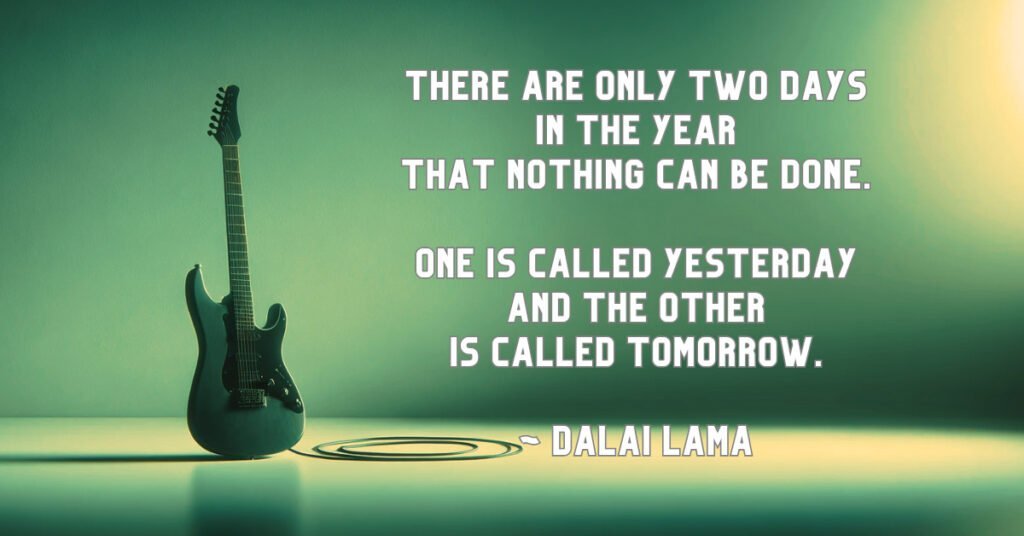Introduction: Tuning into the Rhythms of Joy

Imagine navigating the journey to happiness as if you’re headlining your own rock concert. Each day is a new performance, with its highs and lows, much like the fluctuating pitches in a rock anthem. But don’t worry, you don’t need to be a guitar hero or a legendary rock star to master this. Think of this guide as your personal backstage pass to understanding the complex rhythms of happiness. Just as every musician starts with learning the basics before they can electrify a stadium, we’ll start with fundamental aspects of life that influence our happiness.
Now, let’s not pretend it’s all going to be smashing guitars and crowd surfing. There will be times when it feels more like forgetting the lyrics on stage or playing to an empty room. But that’s all part of the rock and roll of life, isn’t it? In this guide, we’ll explore various aspects from Emotional Awareness and Positive Focus to Personal Growth and Health. Each section is like a track on your life’s greatest hits album, helping you to fine-tune your approach to happiness. So, grab your metaphorical guitar, and let’s riff through these concepts, finding the melody in the madness and the harmony in the chaos. Get ready to turn up the amp on your life’s happiness – it’s time for the show to begin!
Emotional Awareness and Positive Focus
Address rather than suppress negative feelings or thoughts.
Understanding and managing negative emotions is vital for maintaining emotional health and overall happiness. When we confront and process these feelings, we can find underlying causes and work through them, which is crucial for long-term emotional stability. However, consistently ignoring or suppressing negative emotions can lead to increased stress, anxiety, and depression. It’s like ignoring a persistent ache; while it might be bearable for a while, over time it can worsen and become more debilitating.
Choose to focus on the brighter side of circumstances, finding positives in every situation.
Focusing on the positives can greatly improve our mood and resilience. This doesn’t mean ignoring the challenges, but rather choosing to highlight the good in our lives. It’s like adding a splash of color to a dull picture; the overall scene becomes more vibrant and enjoyable. But beware, an overemphasis on positivity, ignoring the realities of challenging situations, can create a disconnection from reality and lead to missing out on important life lessons.
Replace “What if” thoughts with a “Next time” mindset.
Adopting a “Next time” mindset is a proactive approach that focuses on learning from past experiences and using that knowledge for future situations. It fosters a growth mindset, where mistakes are viewed as opportunities for learning. This perspective helps us move forward without dwelling on past errors, promoting a healthier and more constructive outlook on life. However, always focusing on the future without addressing current emotions can prevent us from fully processing and learning from our experiences.
Active Problem Resolution and Letting Go
Actively confront and resolve the causes of displeasure, then release what’s beyond control.
Actively tackling problems head-on allows us to take control of our lives, leading to a sense of empowerment and resolution. It’s like fixing a leak in the house; addressing it promptly prevents further damage. However, obsessing over problems or continually focusing on what’s wrong can lead to increased stress and reduce our ability to enjoy life. It’s important to act on solvable issues while recognizing and accepting the things we cannot change.
Embrace the present fully and maintain a positive outlook during challenging times.
Embracing the present moment, especially during challenges, helps us appreciate life’s small joys and reduces anxiety about the future. It’s about finding contentment in the here and now while being mindful of what lies ahead. However, focusing solely on the present without regard for future implications or failing to prepare for potential challenges can lead to unpreparedness and increased anxiety down the line.
Mindset and Belief Revision
Revise your belief system to eliminate beliefs contributing to unhappiness.
Changing limiting beliefs and adopting more positive, realistic ones can significantly enhance our happiness. It’s like clearing out old clutter that no longer serves us, making room for new, beneficial thoughts and perspectives. But, if we don’t periodically reevaluate and update our beliefs, we risk holding onto outdated ideas that limit our potential for happiness and growth. It’s essential to challenge and change these beliefs actively.
Acknowledge that happiness is a personal choice, not dictated by external factors.
Recognizing that our happiness is largely within our control, rather than dictated by external circumstances, is empowering. It shifts the focus from external events to our internal response, promoting a sense of autonomy and control. However, it’s also important to understand that while we can choose our response to situations, external factors do play a role in our overall well-being. Neglecting this can lead to unrealistic expectations and potential frustration when faced with uncontrollable adversities.
Goal-Oriented Living and Intentionality
Focus on ideal outcomes rather than dwelling on problems.
Concentrating on desired outcomes provides direction and motivation, enhancing our sense of purpose and achievement. It’s like plotting a course on a map; it gives us a clear destination to aim for. However, being overly fixated on outcomes without appreciating the journey can lead to disappointment. It’s important to enjoy the process and celebrate small victories along the way.
Embrace a life filled with purpose, goals, and aspirations.
Living a life with purpose and clear goals provides a sense of direction and satisfaction. It helps us align our actions with our values and ambitions. However, not having clear goals or a sense of purpose can lead to feelings of aimlessness and dissatisfaction. It’s important to set achievable goals and find purpose in both big and small achievements.
Release expectations, concentrating on true intentions.
Letting go of rigid expectations allows us to adapt better to life’s unpredictability, reducing stress and disappointment. It helps us to focus on our intentions and actions, rather than being overly concerned with outcomes. However, completely disregarding expectations can lead to a lack of preparation for potential outcomes and challenges.
Gratitude and Abundance Mindset
Cultivate gratitude for current blessings, paving the way for more.
Practicing gratitude helps us focus on the positives in our life, fostering a sense of contentment and well-being. It’s like shining a light on the good things we often overlook, enhancing our appreciation for them. However, focusing solely on gratitude and ignoring real challenges can prevent us from making necessary improvements in our lives.
Maintain positivity and develop strategies for dealing with challenging times.
A positive outlook and effective coping strategies for difficulties can significantly enhance our resilience and emotional strength. It’s like having a well-stocked toolbox ready for life’s challenges. However, forcing positivity in every situation without acknowledging negative feelings or realities can lead to emotional suppression and long-term stress.
Relationships and Community Engagement
Cherish and cultivate relationships with family and friends.
Investing in relationships with family and friends is crucial for emotional support and happiness. These connections provide stability and comfort, like pillars in our life. However, over-dependence on these relationships for happiness can lead to a lack of self-sufficiency and personal growth. It’s important to balance our reliance on others with our own independence.
Offer support and presence for others.
Being supportive and present for others not only strengthens our relationships but also enhances our sense of purpose and fulfillment. It creates a reciprocal environment of care and support. However, consistently prioritizing others’ needs over our own can lead to neglecting our well-being, leading to burnout.
Personal Growth and Health
Prioritize physical and mental health.
Taking care of our physical and mental health is foundational for a happy life. Regular exercise, a balanced diet, adequate sleep, and mental health care are crucial for maintaining our well-being. However, neglecting these aspects can lead to deterioration in both physical and mental health, impacting our quality of life and happiness.
Pursue activities that ignite your passion.
Engaging in activities we are passionate about brings joy and fulfillment. It allows for self-expression and personal satisfaction. However, not exploring or engaging in activities that interest us can lead to a lack of enthusiasm and a sense of missing out on enjoyable experiences.
Commit to continual personal growth and development.
Continuously striving for personal growth and development enriches our life experience. It involves expanding our knowledge and skills, leading to personal fulfillment. However, an excessive focus on self-improvement without appreciating current achievements can create a perpetual sense of inadequacy and dissatisfaction.
Conclusion: Harmonizing the Melody of Happiness
As we wrap up this harmonious exploration of happiness, it’s clear that crafting a joyful life is much like composing a beautiful song. Each note, from Emotional Awareness and Positive Focus to Personal Growth and Health, plays a crucial role in creating a symphony that resonates with contentment and joy.
Just like a skilled musician who understands the importance of both high and low notes, we too have learned the value of addressing our negative emotions while also celebrating the positive aspects of our lives. It’s a delicate balance, finding the perfect melody that uplifts the soul without overshadowing the deeper, more reflective tones.
In the rhythm of Active Problem Resolution and Letting Go, we discovered the art of tackling life’s challenges head-on while also learning to let go of things beyond our control. It’s a bit like a guitarist who knows when to strum powerfully and when to let the strings resonate on their own.
Our journey through Mindset and Belief Revision showed us that changing our internal narratives can be as transformative as a band reinventing its music style. It’s about rewriting our lyrics to sing a happier tune, even when life throws us the occasional off-key moment.
Goal-Oriented Living and Intentionality taught us to set the stage for our life’s performance, marking out our aspirations and purpose much like a setlist guides a concert. But remember, sometimes the most unforgettable moments come from unplanned riffs and spontaneous solos.
Through Gratitude and Abundance Mindset, we learned to appreciate the fans in our lives – the blessings and positive moments that cheer us on. Yet, it’s crucial to keep it real and not just play to the crowd, acknowledging challenges and working through them.
In Relationships and Community Engagement, we realized that happiness often comes from the band we have around us – friends, family, and community. Their support is like the harmony that enriches a song, but it’s important to ensure we don’t lose our solo parts in the process.
Finally, Personal Growth and Health reminded us to keep our instruments – our bodies and minds – in tune. Regular care and passion for our interests keep the music of our lives vibrant and exciting.
So, let’s strum the guitar of life with a renewed sense of purpose and joy, composing a melody that’s uniquely ours. Here’s to making each day a hit in our album of happiness, filled with notes of joy, chords of resilience, and a chorus of contentment. Rock on towards happiness and may your life’s song be a chart-topper!


